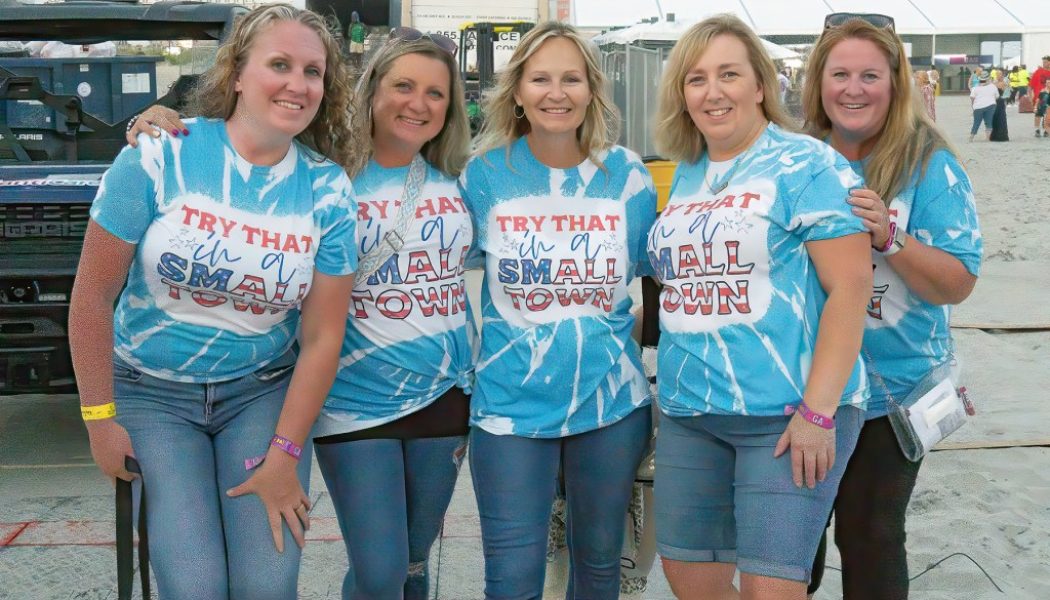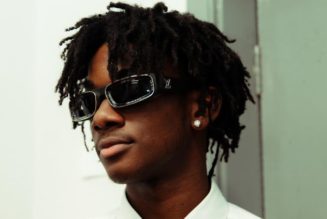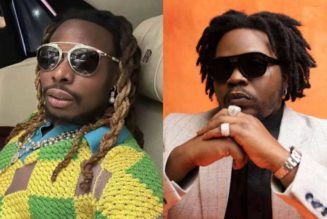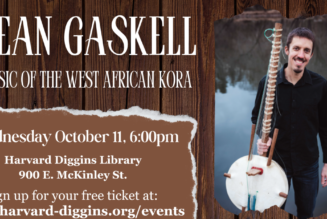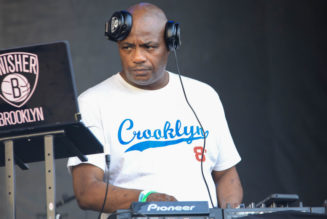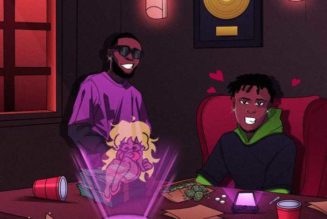Over the last few years, the Gulf Coast Jam, a multi-day concert blowout held every spring in Panama City Beach, Florida, has become one of country music’s leading festivals, pulling in headliners like Miranda Lambert, Luke Bryan, Florida Georgia Line, Kane Brown, and Kenny Chesney. But recently, festival producer Rendy Lovelady has noticed something unusual backstage. “Ten or 15 years ago, everybody would sit in a circle around the table, pull out their guitars and start singing old country songs,” he says. “There was a lot of camaraderie. Whereas now, the camaraderie has definitely lessened. They tend to stay in their own community.”
Part of Lovelady wonders if it’s the lingering after-effects of Covid-19, which forced touring performers to interact as little as possible with anyone outside their circle. But it’s also possible that the drop-off in backstage hangtime is a sign of something else: the national culture wars seeping into the traditionally close-knit country community, a space where artists often take pains to refer to their peers as “my good buddy” or compliment one another.
From less personal interaction backstage to public online feuds, country music is slowly being pulled into the same battles that have infiltrated nearly every aspect of American life and entertainment. “It really is weird right now,” says one leading country manager, who spoke on the condition of anonymity given the sensitivity of the moment. “Country music has aways been this kind of neighborhood where everyone gets along. We had everyone’s back. But it doesn’t feel that way anymore. The heels are dug in more than ever. It’s pretty heavy.”
The manager has also witnessed the same backstage chilliness that Lovelady recounts. However, he says it is unquestioningly due to opposing political ideologies and beliefs. “I’ve always enjoyed seeing people in the hallways backstage,” he says. “But it’s not like that. You tend to avoid people, because everyone talks politics backstage. Everyone used to leave their dressing room doors open. The doors are shut now.”
The major signs that Nashville is visibly fracturing have all happened fairly recently. In August of last year, country and alt-pop singer Cassadee Pope, and then Maren Morris, took Jason Aldean’s wife Brittany to task for making seemingly transphobic comments. (“I’d really like to thank my parents for not changing my gender when I went through my tomboy phase,” Brittany Aldean posted.) This summer, her husband’s song “Try That in a Small Town,” and especially its controversial music video, led to Americana songwriter Jason Isbell tweeting, “Dare Aldean to write his next single himself. That’s what we try in my small town.” On X (the social media site formerly known as Twitter), Jake Owen, a mainstream country singer, seemed to side with Aldean. He clapped back at Isbell by writing in part, “Jason, you’re always the first to get behind your keyboard and spout off with this stupid shit.” (He since posted that he “came in hot on the conversation because I’m passionate about” songwriters.)
The public tiffs also included Zach Bryan, whose duet with Kacey Musgraves “I Remember Everything” is on track to be the Number One song in the nation, taking a shot in April at country acts “insulting transgender people.” The comment was prompted by veteran Travis Tritt’s tweet that he would be “deleting all Anheuser-Busch products from my tour hospitality rider” following a Bud Light promotion that featured transgender influencer Dylan Mulvaney. Bryan, who said that he wasn’t aiming directly at Tritt, later talked it out in person with the Nineties star at a music festival in Texas, with Bryan calling Tritt “a good guy” and Tritt saying, “So glad we had a chance to chat, Zach.”
Although these feuds haven’t dominated the genre, they also haven’t gone unnoticed. “Like all industries, we’re not immune from the external pressures and the world at large,” says R.J. Romeo, president of the Romeo Entertainment Group, a leading talent agency that books country acts. “So naturally, there’s more divisiveness in the country now than ever before. That’s going to show up in opinions on music and everything.”
The history of country music hasn’t been without its share of fights and rumbles; ask anyone who’s worked on an awards show or at a festival and you’ll hear tales of artists grumbling about their peers’ egos, sales figures, or place on the bill. In 2013, Zac Brown made waves when he called Luke Bryan’s song “That’s My Kind of Night” the “worst song I’ve ever heard.” They later hammed it up and hugged it out on live TV at the CMA Awards.
Public quarrels over politics, meanwhile, have been as rare as synthesizer solos in the genre. The then-Dixie Chicks’ feud with Toby Keith, which started when Chicks singer Natalie Maines criticized one of Keith’s songs in a 2002 interview and caught fire after Maines dissed George W. Bush onstage in the U.K. over the 2003 Iraq invasion, was one of the few times in recent memory when open warfare broke out among country artists over political matters.
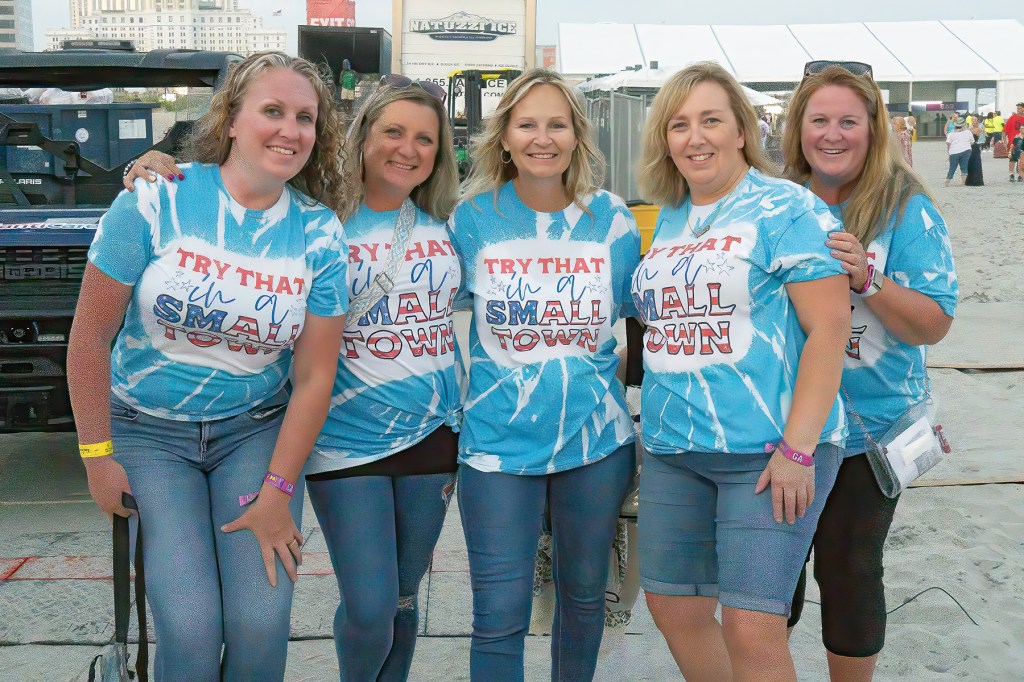
Such quarrels may become more common. “With everything heating up with the presidential race, people are beginning to have very distinct opinions,” Lovelady says. And the shift, involving country stars of different generations and accelerated by social media, has been jarring for longtime observers. Country acts, Romeo says, “all go through media training, and they’re usually very diplomatic or middle of the road with a lot of their responses. But I’ve seen more artists come out of what we call ‘the artist bubble’ and show more of their true self, you could say — or their less polished self.”
When they’re not posting on their socials, country artists can still be discreet: None of the major artists involved in these skirmishes would comment for this story. At his festivals, Lovelady says acts don’t come right out and announce other musicians they want to avoid. “Nobody said, ‘I don’t want to be around them, because I don’t agree with what they’re saying,’” he says. “But they kind of just do it.”
Talking to RS in July about the interpolation trend in country music — new songs that recycle parts of old rock or Nashville hits — Owen sounded a more careful note when the topic of “Try That in a Small Town” came up. “I understand from all sides,” he said. “Everyone’s got their take on it, but that just got so blown out of proportion from a stance of accusations and then someone having to defend themselves.
“When you think back in country music, even going back like to Merle Haggard days, they were talking about political stuff and there was backlash,” Owen added. “In the Sixties and the Seventies, a lot of political things were happening in the world. Maybe that’s a good thing for our genre. Maybe people getting the word out on what they believe is what we need more in songwriting, because it’ll allow for more honesty than this whole sugar-coated sparkle that’s been put on it for a little time.”
Given the relatively newness of the current fracture, the repercussions over any growing rifts are still being felt. Without naming the particular artist, Romeo says he and his team recently had to pause when they considered booking a liberal-minded country singer in a part of California that leans more conservative. “That factors into the conversation now,” he says, “and it never did before.”
On the matter of touring, the manager who spoke to RS says the country culture war has affected who he’ll consider booking as an opening act for his major artist. “We think about that more than ever,” he says. “Are we going to get along with these people? And what are they going to put on their socials that might affect the tour? What are they going to put on Twitter where all of a sudden you’re on CNN having to defend them or not? You have to be careful who you associate with now.”
At the moment, Lovelady doesn’t see country’s culture wars as interfering with his business. Next year’s Gulf Coast Jam will be headlined by Morgan Wallen, also an artist not immune from controversy. “From my perspective as a promoter, I’m selling tickets,” he says. “I don’t care if they hate each other. If they can keep their problems to themselves, then I don’t care.” He says he’d love to book viral star Oliver Anthony to sing his polarizing “Rich Men North of Richmond” too: “Anybody that wouldn’t get a hold of him is absolutely stupid. I’m absolutely interested in him because again it’s all about selling tickets.”
Meanwhile, the coming year, complete with what will likely be the most polarizing presidential election in history, isn’t giving anyone hope that country music’s culture war will abate. In Romeo’s case, he says he’s decided to proceed with his plan to book that unnamed liberal artist on a West Coast tour. “I believe that country music unites people,” he says. “I don’t believe it has to be divisive. I just hope that everybody remembers that, at the end of the day, it’s about trying to bring people together.”
But the manager we spoke with says nothing will change until the larger, more divisive issues are resolved. “Politics has to cool off, but I don’t know if that changes anytime soon,” he says. “It’s a bummer. Now we feel like any other genre, with a bunch of knuckleheads. You lose that innocence and it’s hard to get it back.”
